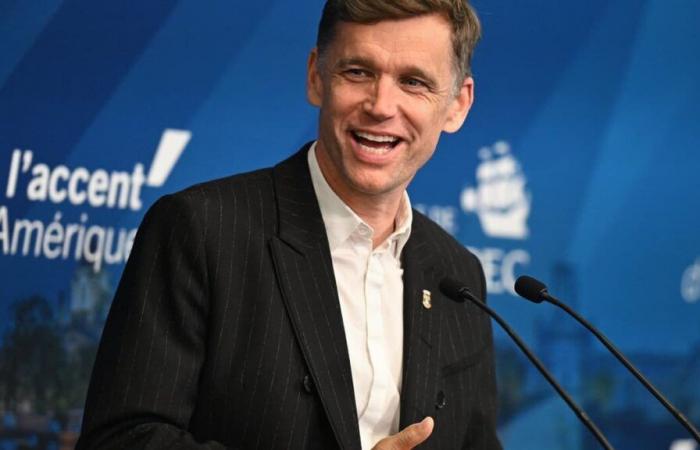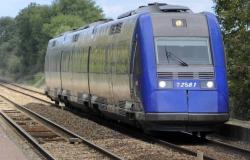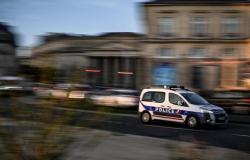One year to the day of the next municipal election, the party of Quebec City Mayor Bruno Marchand will unveil this morning an electoral-flavored video in which it will focus on the quality of life of families throughout the city’s territory. .
The one-minute video of Québec Forte et Fière (QFF) is made up of different animated images. In the background, we hear municipal councilor Maude Mercier Larouche who emphasizes the theme put forward. “Québec is, above all, the people who live there. This is why, for three years now, the mayor and his team have been working hard to improve the daily lives of all citizens in all neighborhoods,” said Mr.me Mercier Larouche.
Thus, “whether we are talking about safety near our schools or daycare spaces or even green spaces and parks in better condition, our commitment is simple: everyone must be able to aspire to quality municipal services regardless his age or the district in which he lives,” she continues.
“Dream big”
Depending on the mayor’s party, the theme of family transcends various municipal issues. “From Cap-Rouge to Charlesbourg, via Sainte-Thérèse-de-Lisieux, Sillery or Limoilou, we are improving both the cultural offering and the transportation offering to make them dynamic living environments. More festive, more vibrant and accessible neighborhoods for young families and for those who have been there for a long time,” explains the voice.
Affirming to have “come a long way in three years”, QFF assures that the party “stays the course because we dream big for Quebec and we want to make it a city close to all its neighborhoods, where it is good to live for a long time” .
“A good strategy”
According to Thierry Giasson, professor in the Department of Political Science at Laval University and specialist in electoral strategies, the mayor’s team is doing well to “occupy the pre-electoral space”. In his eyes, highlighting the theme of families is “a good strategy” in the current context.
“This undoubtedly responds to the surveys and data available to the mayor’s team to determine who are the voters who are hesitant. This probably indicates that there is potential for growth among these voters who live a lot in suburban districts where access to property is easier.”
According to him, QFF “wants to find arguments that respond to the aspirations of these people who may have fears related to security or their ability to travel.”
At the end of the summer, a Léger/The Journal also foreshadowed a close race between Bruno Marchand and his possible rival Sam Hamad, former Liberal minister, in voting intentions for Quebec City Hall. This same survey showed that the outgoing mayor has relatively solid support in the central boroughs, while his level of support drops drastically in the suburbs (31% in Beauport and barely 11% in La Haute-Saint-Charles). ).
Launch the pre-campaign
More generally, expert Giasson believes that the “very simple content” of the video will need to be clarified. “Dreaming big for Quebec doesn’t mean much, especially when it’s linked in the message to local service issues,” he adds. What are the major projects for Quebec that QFF talks about in this message? We can assume that the mayor will take the next few months to explain them.”
Asked about the choice of using the voice of a municipal elected official – rather than that of the mayor – for this advertisement, Mr. Giasson puts forward this hypothesis: “Perhaps the Bruno Marchand brand score a little worse than the QFF brand. We want to put the party forward, which is not a bad idea. But it is certain that the face of the next election will be Bruno Marchand.”
Philipe Dubois, professor of political communication at the National School of Public Administration (ENAP), thinks that the aim of the QFF video is to show that “the machine is well oiled and ready to start” for the electoral pre-campaign.
“I see it as an attempt to frame the results and to begin to inscribe in people’s minds the path that the City has taken in recent years,” he analyzes. In the advertising, Bruno Marchand is not mentioned by name. There are no images of the mayor or elected officials. It’s a very depersonalized ad that could practically be confused with an administrative ad if we didn’t have the QFF logo.”
– With the collaboration of Stéphanie Martin
The electoral marathon launched
Narrowly elected in November 2021 after an election evening with twists and turns, Bruno Marchand first took the head of a minority municipal council. He then obtained a slim majority after the rallying of former opposition elected officials. The outgoing mayor is launching a 365-day marathon today with a second term as mayor of Quebec in his sights.
His trademark
An accomplished sportsman, the 52-year-old has been promoting active mobility since the start of his mandate. It is increasing the construction of cycle paths and accelerating the deployment of àVélo bike-sharing and Flexibus (taxi-bus) services. He denies waging war on the automobile and repeats his desire to combat growing road congestion in the region by offering several ways to get around. Launched under the former municipal administration, the biomethanization center and police station projects were delivered during the first mandate. To the mayor’s credit, Professor Giasson notes the fact that municipal finances remain healthy and that labor conflicts with employees are rare. The mayor’s tree planting policy and efforts in terms of housing (in a context of severe crisis) are generally well received, including among his opponents.
Weaknesses
After having said that he was aiming for “zero homelessness by 2025” during the 2021 electoral campaign, it is clear that the situation is getting worse and that cohabitation with residents and merchants – especially in Saint-Roch – is getting harder and harder, notes Mr. Giasson. Even if this issue falls under provincial jurisdiction, the mayor partially pays the political price. On the other hand, municipal opponents regularly deplore “the lack of transparency” of the Marchand administration in various files, notably that of the tramway (the mayor systematically rejects these accusations). Certain other issues have been controversial for three years at City Hall. This is particularly the case with the level of taxation of merchants, the climate reserve, the relationships – sometimes tense – that the mayor maintains with the government of Quebec and snow removal (an eternal subject of contention in Quebec).
The omnipresent tram
The final assessment of the tramway is still to be written, but we can recall that Bruno Marchand has defended this project since the 2021 electoral campaign while promising to make 10 improvements. In November 2023, the Legault government inflicted “a snub” on him (the expression comes from Professor Giasson) by taking it out of his hands. But Mr. Marchand was able to get back in the saddle, a few months later, when the Caisse de dépôt et placement du Québec Infra (CDPQI) concluded that the tramway is indeed the best option to constitute the backbone of public transport in Quebec. In this case, the principle of municipal autonomy has taken a hit, but the blame must be borne more by the government of Quebec than by the Marchand administration, believes Mr. Giasson.
Waiting for Sam
Professor Thierry Giasson believes that Sam Hamad “made a mistake” by delaying the official announcement of his candidacy. The specialist argues that a mayoral election campaign has its particularities. “Quebec is not a village. Sam Hamad has to speak to a diversity of people. Deploying a municipal campaign in the second largest city in Quebec requires a different vision than organizing a campaign to be a deputy. A year before the election, it will pass very quickly,” he believes. Philippe Dubois, professor at ENAP, does not agree. According to him, Mr. Hamad does not need to show off too quickly. “Without campaigning, Sam Hamad is currently attractive. The sooner he officially becomes a candidate, the sooner he will have to take positions and participate in the contest. So the sooner he will risk gaining or losing feathers. In this case, it is in his interest to leave doubts lingering,” he believes. That said, the expert is convinced that one of the goals of the QFF video is to “force the game” to force possible opponents of the outgoing mayor – including Sam Hamad – to quickly announce their colors and reveal their game.
End of the “festival of caresses”
At the start of the mandate, the change in tone compared to the Labeaume administration was quite marked. The exchanges were cordial and the word “collaboration” was used in every way for many months. This new way of doing politics did not last long, however, and the atmosphere in the municipal council became, at times, acrimonious. According to Thierry Giasson, this development is not exceptional. “It’s politics. People are opposed. The competition for power is not a festival of caresses,” he says with a laugh.
An atypical schedule
It is exceptional to see Bruno Marchand hold a press briefing on the weekend as he will this morning. According to Thierry Giasson, the goal is first of all to “strike people’s minds at one year [jour pour jour] elections.” But should we see this choice as an attempt to avoid questions from the specialized municipal press? “Political parties at all levels are now taking advantage of the weekend to make announcements, sometimes very important. It is a communication tactic that usually allows parties to control the initial framing of their message in the media because the media analyzes will come later, in the days that follow,” declares the professor. For Philippe Dubois, the choice of a Saturday is probably “symbolic” exactly one year from November 2, 2025.
Do you have any information to share with us about this story?
Write to us at or call us directly at 1 800-63SCOOP.






